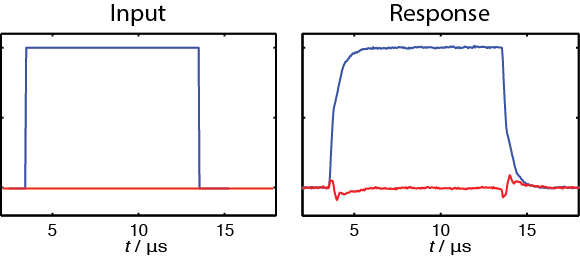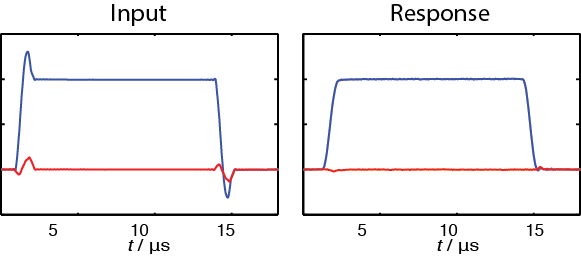Transient-compensation
Pulse sequences in NMR experiments are based on the assumption that the rf pulses are “perfect”, i.e. the spins experience a rotation defined by a rotation axis and a magnitude identical to the theoretical ones. In reality the features of rf pulses deviate from the ideal ones and these deviations, called pulse transients, are one of the main reasons for imperfections in complex NMR experiments.
In a solid-state NMR probe a "theoretical" rectangular rf pulse (input) typically provides a non rectangular response.
Recently it was shown that pulse transients can be predicted and compensated. "Transient-compensated pulse sequences" can be obtained by exchanging hard pulses by these transient-compensated pulses and introducing at the same time the necessary modifications in the pulse sequence in order to keep the desired properties. We believe that transient-compensated pulse sequences will provide NMR experiments which are more reproducible and more independent of experimental imperfections.
When a compensated rf input is employed, a rectangular response is produced.
Collaboration with external pageKazuyuki Takedacall_made (Kyoto University, Japan).


